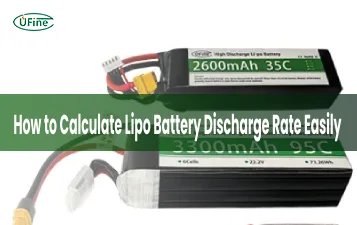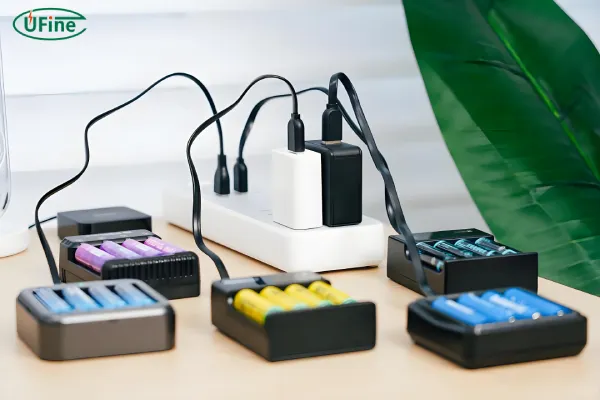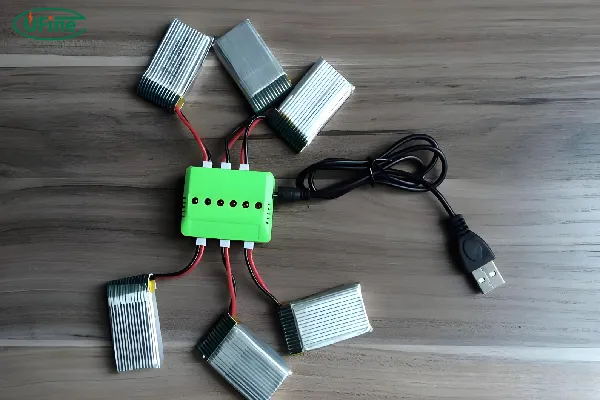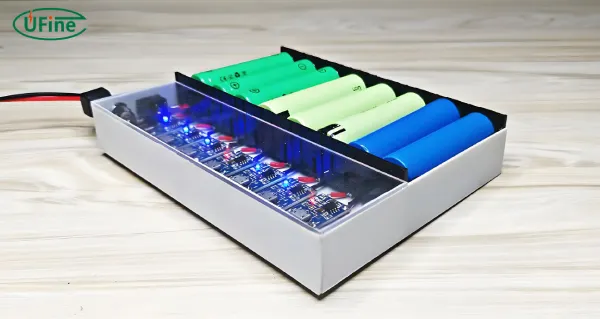Lipo batteries, renowned for their high energy density and lightweight design, have become the preferred power source for a wide range of applications, from remote-controlled vehicles to drones and even power tools. However, to maximize their performance and longevity, it’s essential to pair them with a suitable lipo charger.
Part 1. Understanding lipo chargers
A lipo charger is a specialized electronic device engineered to safely and efficiently recharge lithium-polymer batteries. Unlike traditional chargers, lipo chargers require a more intricate charging process to accommodate the unique characteristics of lipo batteries. This involves carefully managing charging rates, voltage levels, and cell balance to prevent damage and optimize battery life.
Part 2. Key factors to consider when buying a lipo charger
Selecting the right lipo charger involves careful consideration of several key factors to ensure optimal performance and safety:
-
Battery Compatibility: The most crucial factor is ensuring compatibility between the charger and your lipo battery. This includes matching the battery’s cell count (2S, 3S, 4S, etc.) and chemistry (LiPo) with the charger’s specifications. Incorrect compatibility can lead to charging errors, damage to the battery, or even safety hazards.
-
Charging Rate: The charging rate, often expressed as a C-rating, indicates how quickly the charger can replenish the battery’s energy. Higher C-ratings translate to faster charging times, but it’s essential to stay within the battery’s recommended limits to prevent overheating and damage.
-
Safety Features: A reliable lipo charger is equipped with essential safety features to protect both the battery and the charger. Overcharge, over-discharge, and short-circuit protection are standard, but advanced chargers may also include temperature monitoring, cell balancing, and automatic cutoff functions.
-
Balance Charging: Lipo batteries consist of multiple cells, and maintaining a balanced state of charge is crucial for optimal performance and longevity. A balance charger actively monitors and adjusts the charging current to each cell, preventing imbalances that can lead to premature capacity loss and safety risks.
Part 3. Types of lipo chargers
Lipo chargers come in various types, each tailored to specific user needs and battery configurations:
-
Basic Chargers: These chargers offer fundamental charging capabilities and are suitable for users with limited requirements or budget constraints. They typically lack advanced features like balance charging and may have slower charging speeds.
-
Balance Chargers: Essential for maintaining battery health, balance chargers prioritize cell balancing to prevent imbalances that can lead to premature battery degradation. They are recommended for most lipo battery users.
-
Fast Chargers: Designed for users who prioritize charging speed, fast chargers deliver higher charging currents. However, they often come with higher price tags and may require careful monitoring to prevent battery damage.
-
Smart Chargers: Incorporating advanced features and intelligent charging algorithms, smart chargers offer precise control over the charging process. They often include additional functions like discharge capabilities, storage modes, and battery diagnostics.
Part 4. Lipo battery charge voltage
Lipo batteries operate on a specific voltage determined by the number of cells in the pack. Each cell typically has a nominal voltage of around 3.7 volts. To calculate the total battery voltage, multiply the number of cells by 3.7. For instance, a 3S lipo battery (three cells) has a nominal voltage of 11.1 volts.
It’s crucial to match the charger’s output voltage to the battery’s voltage to ensure safe and efficient charging. Using a charger with an incorrect voltage can damage the battery or the charger.
Part 5. Lipo charge rate: Balancing speed and safety
The lipo charge rate, expressed as a C-rating, indicates how quickly a battery can be fully charged. For example, a 1C charge rate means it takes one hour to charge a fully discharged battery. A higher C-rating translates to faster charging times, but it’s essential to stay within the battery’s recommended limits to prevent overheating and damage.
Exceeding the battery’s recommended charge rate can lead to serious consequences, including swelling, thermal runaway, and even fire. It’s crucial to strike a balance between charging speed and battery safety. Always prioritize the health of your battery over charging time.
Part 6. Lipo cell chargers: The importance of balancing
Lipo cell chargers are specialized devices designed to individually charge each cell within a lipo battery pack. This is essential for maintaining a balanced state of charge, as imbalances can lead to reduced battery capacity, performance degradation, and safety risks.
By carefully monitoring and balancing each cell, a lipo cell charger helps to extend the battery’s lifespan and prevent premature failure. It’s highly recommended to use a balance charger for optimal lipo battery care.
Part 7. Key features of a high-quality lipo charger
A top-tier lipo charger offers a range of features that enhance safety, performance, and convenience:
-
Balance Charging: Essential for maintaining cell balance and preventing premature battery degradation.
-
Discharge Function: Allows for controlled discharging of the battery, which can be beneficial for storage or testing purposes.
-
Storage Mode: Maintains the battery at a safe storage voltage to prolong its lifespan.
-
Temperature Monitoring: Protects the battery from overheating by monitoring and adjusting the charging process accordingly.
-
Delta-Peak Detection: Accurately determines the end of the charging cycle to prevent overcharging.
-
Multiple Charging Modes: Offers different charging profiles to suit various battery types and conditions.
-
LCD Display: Provides clear and informative feedback on charging status, battery parameters, and error messages.
-
Safety Certifications: Indicates compliance with safety standards and regulations.
By carefully considering these features and selecting a charger that aligns with your specific needs, you can ensure the optimal performance and longevity of your lipo batteries.
Part 8. Best lipo charger brands
The market offers a wide range of lipo chargers from various brands. Some of the well-regarded brands known for their quality and reliability include:
-
Turnigy: Offers a diverse range of chargers at competitive prices.
-
IMAX: Known for precision and advanced features.
-
HobbyKing: Provides a vast selection of chargers to suit different budgets and needs.
-
Dynamite: Offers high-quality chargers with a focus on performance.
-
Spektrum: Known for integration with RC systems and advanced features.
It’s essential to research and compare different brands to find the charger that best suits your requirements and preferences.
Part 9. Choosing the right lipo charger for your needs
Selecting the appropriate lipo charger involves considering several factors:
-
Battery type and specifications: Ensure compatibility between the charger and your lipo battery.
-
Desired charging speed: Balance the desire for fast charging with the battery’s recommended limits.
-
Safety features: Prioritize chargers with essential safety features like balance charging, overcharge protection, and temperature monitoring.
-
Budget: Determine your budget and choose a charger that offers the best value for your money.
-
Additional features: Consider features like discharge capabilities, storage modes, and LCD displays based on your specific needs.
By carefully evaluating these factors, you can select a lipo charger that effectively meets your charging requirements while safeguarding your valuable batteries.
Remember, investing in a high-quality lipo charger is crucial for maximizing the performance and lifespan of your lipo batteries. Proper charging practices, combined with the use of a suitable charger, will help you enjoy your devices to their full potential.
Related Tags:
More Articles

LiPo Battery Discharge Rate Guide & Calculation Tips
Understand LiPo battery discharge rates, C-ratings, and how to calculate max current. Essential guide for RC, drones, and electronics users.
High‑Capacity 3S LiPo Batteries: 5000 mAh vs. 10000 mAh
Compare 3S LiPo 5000mAh vs 10000mAh batteries by weight, power, and use. Find the best fit for your drone, RC car, or boat setup.
Top 5 Applications for Small 3S LiPo Batteries
Small 3S LiPo batteries power drones, RC gear, wearables, and robotics with high energy and low weight. Making them ideal for compact electronics projects.
Building and Charging Your Own 3S LiPo Pack: A Step‑by‑Step Guide
Learn how to build, balance, and charge a 3S LiPo battery pack safely at home with this complete DIY guide for hobbyists and beginners.
How to Choose the Right LiPo Battery Plug Type?
Discover the best LiPo battery plug types, how to choose them, and expert tips for safe usage, soldering, and maintenance.






